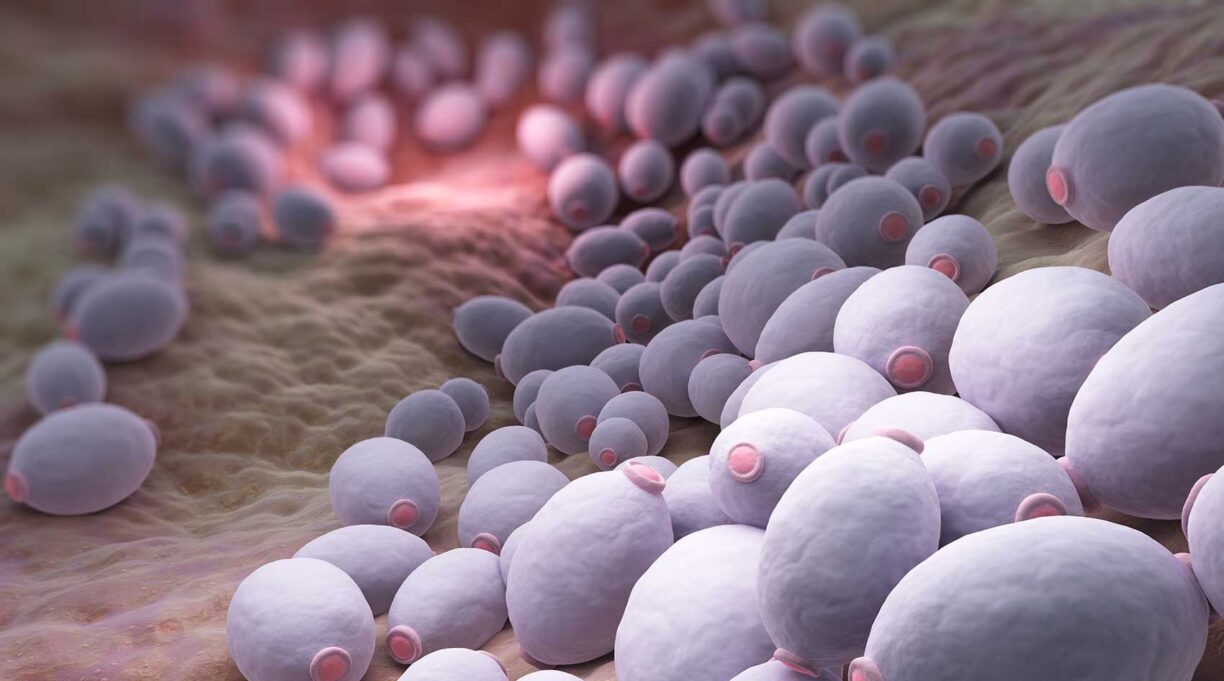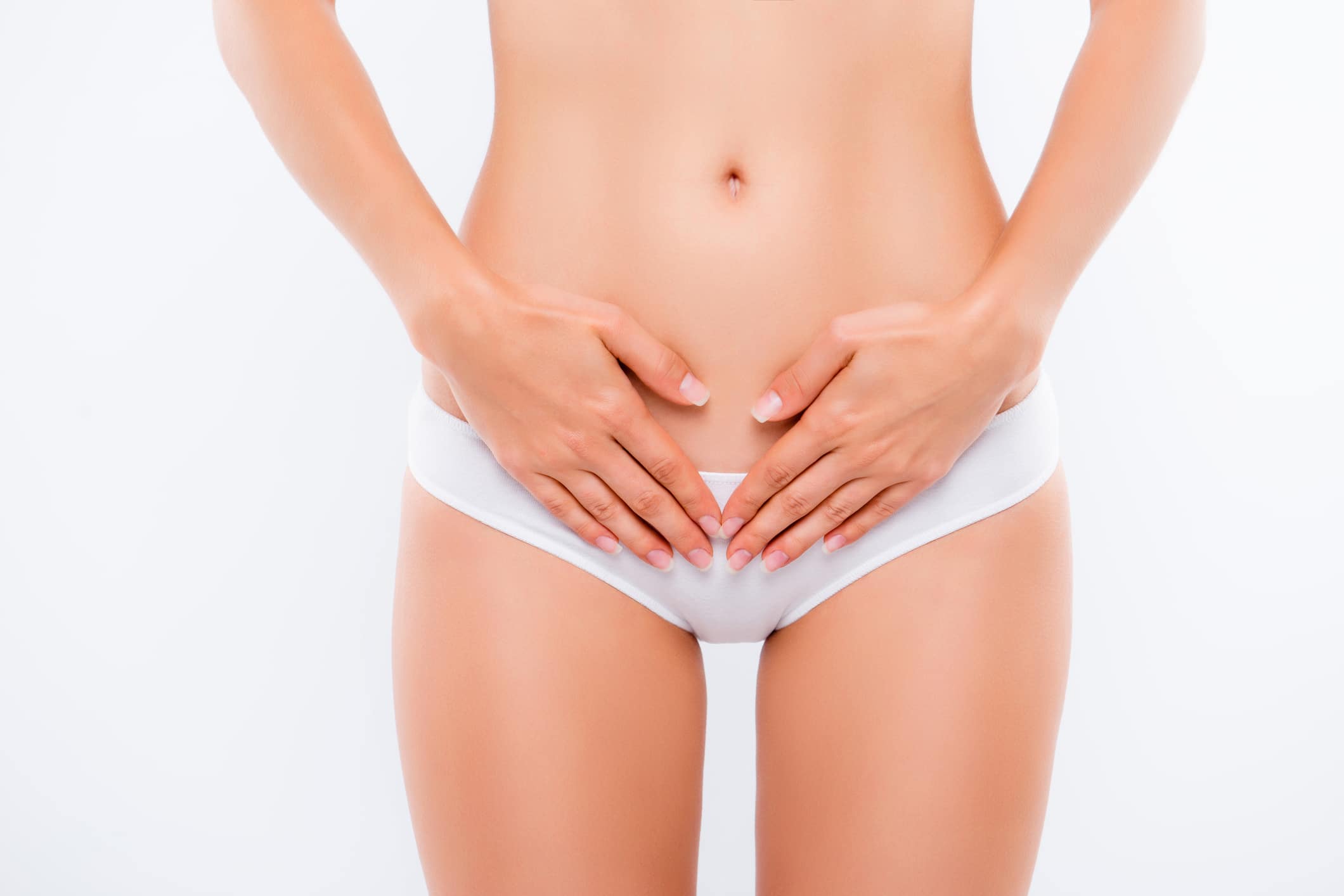It’s uncomfortable, it’s itchy and it’s often embarrassing to deal with. Thrush is a yeast infection that’s more common than you think – at least three out of four women will experience it at some point in their lifetime, but it can also affect men too.
It’s usually harmless, but it can keep coming back if you don’t take the right precautionary steps to keep it at bay.
We spoke with Harley Street gynaecologist Tania Adib to find out a few fast facts on the infection…
What is thrush?

“Thrush is the medical term to describe a yeast infection that can affect both men and women.
It usually isn’t anything to be concerned about and there are effective treatments,” explains Adib.
“The condition is thought to be caused by an overgrowth of the yeast-like fungus, called candida albicans.
Usually the good bacteria within the vagina helps maintain a balance of good and bad bacteria and fungus.
However, an imbalance can lead to an overgrowth of yeast, potentially leading to an infection such as thrush.”
What are the symptoms of Thrush in men and women?
Adib explains that the symptoms of thrush are similar for both men and women. “For men, they’ll usually appear under the foreskin or around the head of the penis.
The condition can sometimes also spread to the groin area, causing a painful rash.”
Women, on the other hand, will experience symptoms in and around the vagina. “Thrush manifests itself as thick, curd-like discharge which causes itching and discomfort.
There is nothing harmful about the discharge itself, it’s just inconvenient, unpleasant and uncomfortable. There may also be a yeasty, sweet smell to the discharge,” she says.
Thrush can also present itself with just itching and redness, which can cause many women to be unaware that they have thrush.
“Some people may misdiagnose symptoms of itching and redness as dermatosis, which has the same symptoms,” notes Adib. “Other common symptoms of the condition include stinging when passing urine and pain during sex.”
How can you treat Thrush?
“In some cases, thrush may go away on its own,” says Adib, “however it may take time, and it’s best to get your symptoms checked out.
An at-home test like the Canestest Self-Test for Vaginal Infection (£7.99, pharmacyfirst.co.uk) can give you an answer in ten seconds to help you determine if you’re suffering with thrush or another condition such as bacterial vaginosis (BV).”
Vaginal thrush can usually be managed by over-the-counter products from your local pharmacy. An anti-fungal cream and oral capsule, such as Canesten Thrush Duo Oral Capsule & External Cream (£13.99, boots.com), can help to clear the infection.
“Probiotics can be beneficial when experiencing thrush too, as they often occur due to an imbalance in the vaginal flora,” says Adib.
“Following treatment, probiotics can help, either a vaginal or an oral tablet, which help support a good balance of bacteria.
If specialist probiotics for the vagina are used after antibiotic treatment, it can prevent further episodes and support a good balance of bacteria.”
How can you avoid getting Thrush?
Here, Adib shares her top tips for stopping thrush in its tracks…
1. Avoid Perfumed Soaps
“Women should wash their intimate area with either water or an unperfumed, specialist wash to help support a healthy balance of microflora.
It’s also very important to properly dry before dressing again, as bacteria thrives in moist environments.”
2. Wear breathable gym clothes
“When it comes to frequent exercise and vaginal health, women do need to be careful.
Gym wear usually includes synthetic, non-breathable fabric, which when sweating from exercise can create a lot of moisture build-up.
Conditions such as thrush thrive in these warm conditions, and you are more likely to get irritation on and around the vulva.”
3. Support your immune system
“Your immune system affects how the body performs and responds to threats, including inside the vagina.
If your immune system is run down, which may commonly be down to stress, or a virus, you are more likely to get a vaginal infection.”
4. Stay hydrated
“Dehydration can cause countless problems and is very bad for the body.
When you urinate, you flush out any toxins and bad bacteria.
However, if you’re not able to flush toxins through the body, you’re more likely to get discomfort and an infection.”
5. Avoid sugar
“Diet can also affect your intimate health, high sugar and high acidity (often found in alcohol) can damage your vaginal pH balance as well.”
6. Wear the right underwear
“Cotton knickers are best for your intimate health, as many synthetic fibres have harsh chemicals in that can be very irritating to the vulva.
The colouring of the dyes they use in underwear can also be very irritating. I would always recommend that women do not wear them at night.
However, I would always advise wearing underwear in the day, as materials in tights and trousers can be very harsh on the intimate area.”





